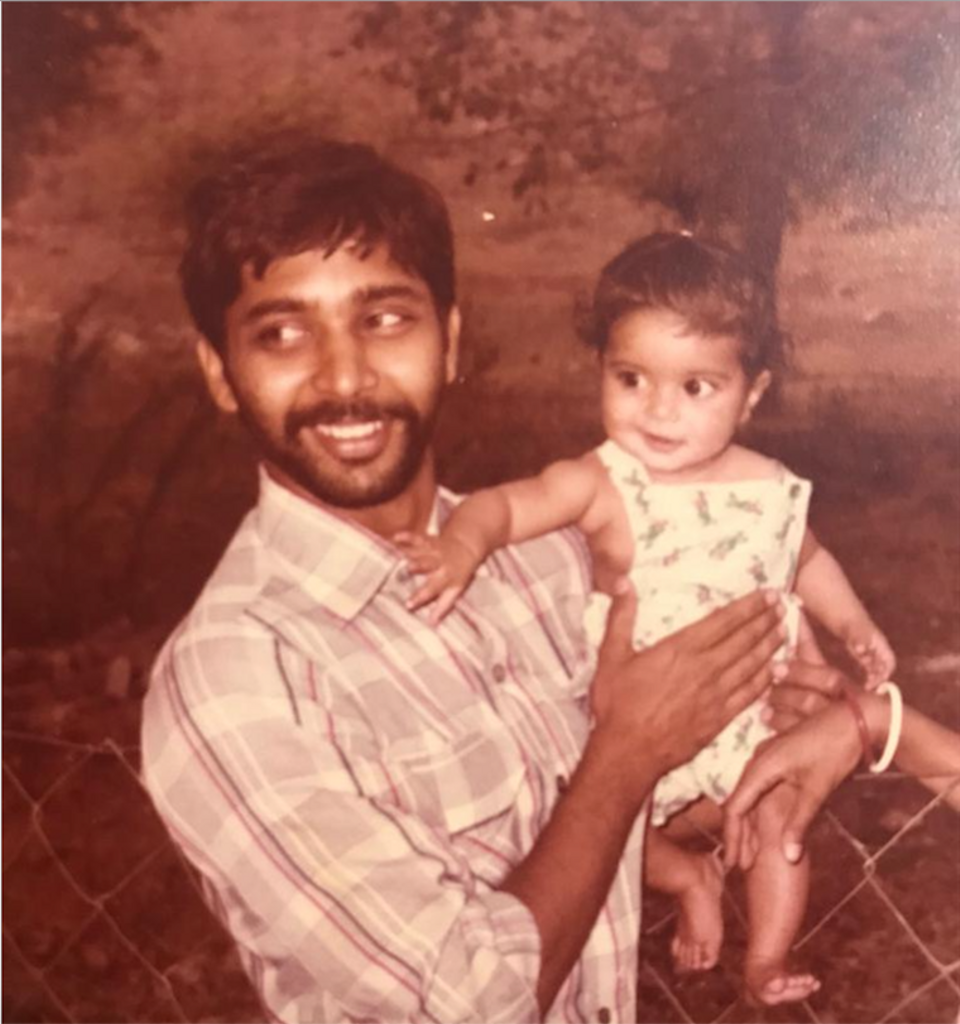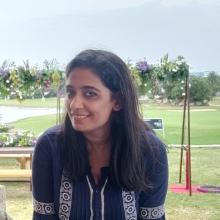Prashant Rahi was acquitted in the ‘war against state’ case after 14 years but remains in jail for another case as the arrest of dissidents using harsh laws continues to rise under the Hindu nationalist government.
Shikha was 24 when her father, journalist-activist Prashant Rahi, was arrested in 2007, accused of waging war against the Indian state.
Fourteen years later, she and her father are still fighting a battle against the state to prove his innocence.
Rahi, 62, was acquitted on January 7 but remains in jail in the western Indian state of Maharashtra, sentenced to life in a separate case. His appeal against the conviction is yet to be taken up by the courts.
“The acquittal has sparked hope in me and also my dad. Till now, I was fighting the case and attending court hearings year after year. Now I feel that I would be able to free my dad in the case for which he is in jail,” Shikha tells TRT World.
“We have filed an appeal in the Nagpur Bench of the Bombay High Court against the verdict of the lower court,” she adds.
Rahi has spent nearly 12 years in different jails in India, mostly in solitary confinement.
Shikha says that after his acquittal, her father conveyed his anger against the Hindu nationalist Bharatiya Janata Party (BJP). Shikha says a day after the court verdict her father told her: “Everybody is suppressed under this regime."
An engineering post-graduate from one of India’s most prestigious educational institutions, Banaras Hindu University, Rahi has been accused of several serious crimes, including having ties to left-wing Maoist rebels.
Charged under the draconian Unlawful Activities Prevention Amendment Act (UAPA), Rahi’s story is among several similar cases in India of people being systematically targeted by the state over minor infractions.
Though Rahi’s case is an old one, such incidents of state persecution of journalists, activists and ideological opponents have increased manifold since the Hindu right-wing BJP took charge of the federal government in Delhi in 2014.
Even when Rahi was arrested in 2007, Uttarakhand had a BJP government, although it was not until a few years later that Hindu nationalism swept through the country.
The UAPA gives the police extraordinary powers and makes it extremely difficult for an arrested person to get bail. The trial can last for several months or years.

How it began
After completing his masters in technology in 1985, Rahi worked as a researcher and then as an engineer for the next five years. Those were tumultuous times in the Himalayan region that was his home. A civil movement was taking shape, demanding the creation of a separate province of Uttarakhand, to be carved out of Uttar Pradesh.
The statehood movement was an offshoot of another mass movement against the construction of the Tehri dam—India’s tallest—in an ecologically fragile Himalayan region. Uttarakhand became a separate state in November 2000.
Rahi first worked as an assistant editor for a bi-monthly magazine, then as a reporter for the Himachal Times, then finally as a correspondent for the Kolkata-based daily, The Statesman, with which he was associated for seven years.
Rahi wrote extensively on the plight of hundreds of farmers displaced by the dam project who did not receive the promised compensation.
Between 2005 and 2007, he also arranged legal aid for many activists involved in the statehood movement who were arrested under sedition charges, and wrote articles about police harassment of people who helped the activists secure bail.
It was then that Rahi came under police surveillance. He was “arrested” on December 21, 2007, though he claimed in court that he was picked up five days earlier. He was accused of carrying banned Maoist literature and showing movies to inspire locals to join the Naxalite movement, once described by former Prime Minister Manmohan Singh as the “biggest internal security threat” to India.
After he was granted bail in 2011, Rahi campaigned for the release of political prisoners such as activists and tribals incarcerated on false charges and arranged legal aid for their release. Police arrested him again in September 2013, accusing him of helping a banned Maoist organisation in the western state of Maharashtra. In 2017, a court in Gadchiroli sentenced Rahi and several others to life terms.
A parallel battle
When Rahi was arrested, Shikha was struggling to find a foothold in the unforgiving and cutthroat world of movies in Mumbai—as an assistant director in low-budget films and documentaries.
Her parents had divorced when she was just 12 and she was saddled with the additional responsibility of taking care of her aged grandparents, both physically and emotionally. She recalls that breaking the news of Rahi’s arrest to her grandparents—based in Nashik, another city in Maharashtra—was emotionally draining.
Now she had to pick up her father’s battle—hire lawyers, appear in court, meet him in jail.
“I had to spend four to five days and Rs 25,000 (around 330 USD in current rates) per month to travel from Mumbai to jails in Uttarakhand where my father was lodged till he got bail in 2011,” she says.
“I would hardly get 20 minutes to speak to him during each visit. A police official would always be sitting next to us. There was no time to talk about personal issues or emotions. We couldn't even finish talking about the case, lawyers or the next court dates.”
She is thankful that many of her father’s friends helped her financially, and many lawyers worked pro bono on the case. They taught her how to talk to police in court and navigate mental trauma.
Her grandmother Rajani, an 85-year-old retired college professor, and grandfather Narayan, a retired Indian Railway official, are economically well-off, but Shikha avoided seeking their financial help.
“My grandparents never supported the career choice of my father who chose to be a journalist and activist. They thought he could have been successful as an engineer. So I was hesitant to take money from them,” Shihka says. “However, they have been supportive emotionally and were concerned about my father.”
She had wanted to make a career in the film industry, but Shikha struggled mentally. “Initially, I would get frustrated over why my dad didn't have a regular 9 to 5 job, why he had to be an activist, why I have to handle everything on my own? I couldn't tell my friends that my dad was in jail and that too under charges like UAPA,” she says.
“And at the same time, I would get angry and emotional that he had to live in jail because he tried to help people who were marginalised. But over time, I realised this is a battle against state repression, for people who work for society,” she adds.
Seeing Shikha’s struggle, her mother left her teaching job in Delhi and moved to Mumbai to be with her in 2009. Meanwhile, her grandfather died while Rahi was out on bail in 2013. Shikha also had to convince her grandmother to move to Mumbai so that she could take care of the octogenarian.
Rahi’s mother struggled to cope with her son’s arrest, with the police seizing their house, and dealing with multiple visits from the authorities. “She would panic even when friends or family members visited us,” Shikha says.
Now she is stuck in a job with a regular salary that, at least, takes care of the expenses for her father’s court case. “I don't have freedom to plan travel as I have to be on my toes if something happens in jail or the court cases. My aunt who stays in the US has been asking me to visit her but I don't even have an option to think about it. My mind is not free to pursue my hobby of Kathak (a classical dance) or to write,” she says.
Shikha, who once wanted to write scripts, now thinks it will be impossible for her to be creative enough to write something of her own.
“You need your mind and your free time to be creative to write a script or make films. Currently, my mind is always busy planning… to call this lawyer, that lawyer, asking about filing applications, finding out about the health problems of my father, planning travel to meet him in jail.”
She has reached such a point that Shikha doesn't know how to lead a normal life or celebrate special moments. “Nothing like marriage that happens in the life of normal people has happened to me. I bought a musical instrument that I wanted for years but I couldn't feel like sharing this news with my father. I mean like what can be more important than the freedom of a person,” she says.
“I would be emotionally overwhelmed (thinking about) dad’s incarceration, his health issues that are not being addressed in jail, and my career. If I don't switch off my mind from all of it, I might kill myself.”
The government's arbitrary use of the UAPA has triggered a countrywide panic, leaving journalists and activists on tenterhooks. Fifty-five journalists in India faced arrest or threats for reporting on Covid-19 or freedom of expression in just two months from March 25 to May 31 2020, according to the report “India: Media's Crackdown during Covid-19 Lockdown” published by Rights and Risks Analysis Group in June 2020.
The Reporters Without Borders' 2021 World Press Freedom Index ranked India 142 out of 180 countries. In 2020, UNESCO ranked India as the sixth most dangerous country for journalists.
The Committee to Protect Journalists (CPJ) has also expressed concern over decreasing press freedom under the Narendra Modi-led government in India.
Steven Butler, Asia Programme Coordinator of CPJ, tells TRT World: "We are worried (about) UAPA being slapped against journalists… the state can detain reporters without bail for long.
“Police pick up and interrogate reporters in Jammu and Kashmir for writing about the abrogation of Article 370 (which stripped the region of its special status).
“Mainstream newspapers are under financial stress as the government is able to discourage advertisements to newspapers that are critical of it. Overall, journalism is under tremendous pressure."
While the UAPA places the burden of proof on the accused, making it difficult for the person to get bail, the law also invisibilises the victims’ suffering and affects their families on both a psychological and financial level.
“Dad keeps motivating me to read, write my own scripts/stories for a movie or do something creative. Of course, he knows that it is not easy what I have to go through, and he remains concerned about my emotional wellbeing,” says Shikha.
In an interview with Rediff.com shortly after the verdict, Shikha said she cried when she saw her father—through video-conference—on a stretcher. Though Rahi has been diagnosed with sciatica, an illness that causes severe pain, prison authorities have allegedly not provided him medical care.
“I was angry that the state had deprived me of relishing the moment we were all waiting for through these last 14 years,” Shikha added.













0 Comments